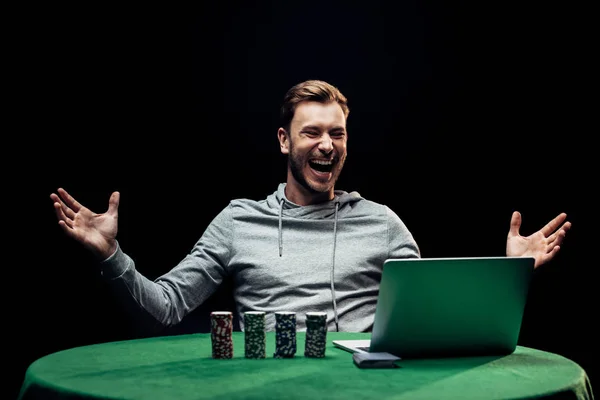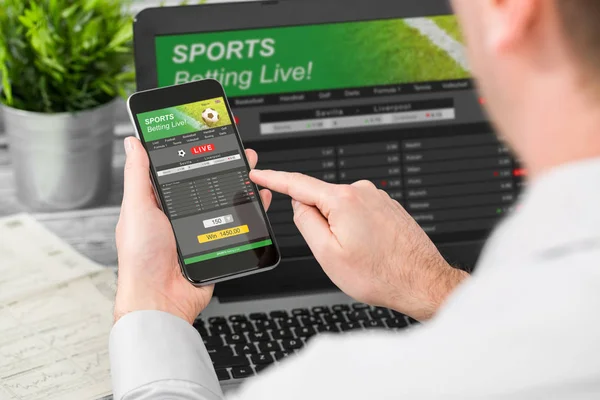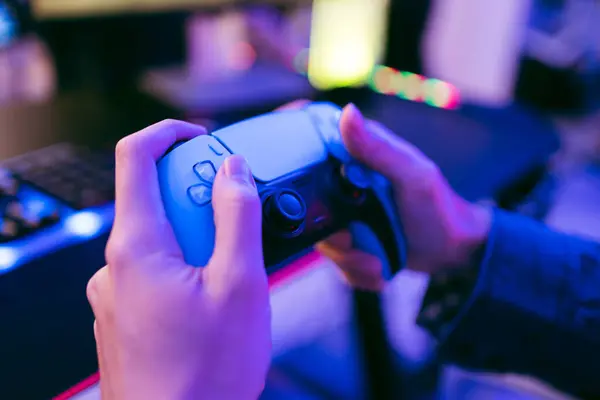
The floodgates opened when the Supreme Court struck down the federal ban on sports betting in 2018. At the time, Americans legally wagered less than $5 billion annually. Last year, that figure hit $150 billion. But rather than merely growing, the market has reshaped itself into a national public health crisis, with young men bearing the brunt.

1. From Casinos to Smartphones
Ninety percent of bets are now placed on phones, not in casinos or racetracks. Over half are “live bets,” made while games are in progress. The apps offer hundreds of micro-wager options-whether the next pitch will be a strike, or if a player will hit a certain stat line. There’s no travel, no cash withdrawal , no physical barrier. “Mobile betting is fast-food gambling,” said one addiction expert. “It’s processed, instant, and designed to hit dopamine circuits hard.

2. Hazardous Gambling: The Gray Zone
The majority of gamblers will not meet the criteria for a gambling disorder. But between recreational play and full-blown addiction lies hazardous gambling-a pattern that “appreciably increases the risk of harmful physical or mental health consequences,” according to the International Classification of Diseases. The Lancet’s 2024 commission warned that a substantial proportion of harm occurs below the threshold of clinical addiction. Symptoms include obsession, mood swings, and intrusive thoughts, all of which can erode academic performance, relationships, and mental health.

3. The Ad Blitz and Influencer Effect
Ads for sports betting are incessant. Advertising campaigns, like the one where comedian Eric André follows a man to urge bets for FanDuel or Stephen A. Smith’s AI-generated promotion of a gamblified solitaire app, make constant wagering seem normal. According to Australian research, exposure to embedded sports betting ads and inducements raises both intended and actual betting, especially when promotions imply lower risk. The industry has rebranded isolation and obsession as dedication, so now gambling is a badge of commitment.

4. Groomed from Childhood
Young men of today grew up with video games containing randomised rewards, commonly known as loot boxes, that emulate the mechanics of slot machines. Belgium banned them as “dangerous for mental health,” but they remain perfectly legal in the U.S. Early exposure conditions risk-taking behavior, primes reward circuits, and blurs the line separating gaming from gambling. This mix of elements-the economic anxiety, social isolation, and parasocial influencer relationships-makes young men the ideal target.

5. Behavioral Targeting and Dopamine Design
Betting apps employ advanced behavioral tracking to find vulnerable moments when bonuses or odds boosts can be most effectively pushed. The design is analogous to slot machines: fast, repetitive , un predictable to evoke dopamine in the phase of anticipation. “The light-up of the dopamine occurs in the anticipation of the result, not the actual result,” says Dr. Harry Levant. This neurological hook is particularly strong in people under 26, whose prefrontal cortex-the rational decision-maker of the brain-is still developing.

6. International Policy Responses
Other nations are acting. Great Britain has restricted predatory VIP programs and outlawed loot boxes. Some countries ban celebrity gambling endorsements. Most of the regulations seek to lessen youth exposure and curb inducement-driven betting. In contrast, regulation in the U.S. remains spotty, doing little to restrict advertising or the design of apps.

7. Digital Recovery Tools
There is promise in mobile health interventions. A review of problem-gambling apps by Yale found that those featuring cognitive-behavioral therapy and in-app communities ranked highest on quality and engagement. Tracking days gamble-free, psychoeducation, emergency “SOS” resources-these are all potentially helpful features in terms of helping users self-regulate. But most available apps do not have evidence-based design, and there tends to be a rapid decline in engagement without interactive and social features.

8. The Role of Education and Prevention
Experts say early education, before gambling starts, is key. Interactive prevention programs, discussions about loot boxes, and an understanding of psychological hooks can prepare young minds to resist unhealthy patterns. In the words of Dr. Jeffrey Derevensky: “We educate our kids about alcohol, drugs, and unsafe sex. Gambling prevention is almost absent from school systems.”

9. Building Safety Infrastructure
Recently, states like New York have begun to dedicate revenue from gambling taxes to treatment and prevention, for example, by offering Medicaid coverage for gambling disorder. According to advocates, every dollar used in advertising to encourage people to gamble should be matched with a dollar spent on counter-advertising. Responsible gaming tools exist-deposit limits, time-outs, self-exclusion-but they require proactive use and visibility. The warning signs are already there-in the morning routines of college students, in the saturation of sports broadcasts with betting prompts, and in the steady rise of helpline calls.
The crisis won’t be contained without coordinated regulation, accessible treatment, and a cultural course correction away from normalizing constant wagering. The floodgates opened when the Supreme Court struck down the federal ban on sports betting in 2018. At the time, Americans legally wagered less than $5 billion annually. Last year, that figure hit $150 billion. But rather than merely growing, the market has reshaped itself into a national public health crisis, with young men bearing the brunt.


